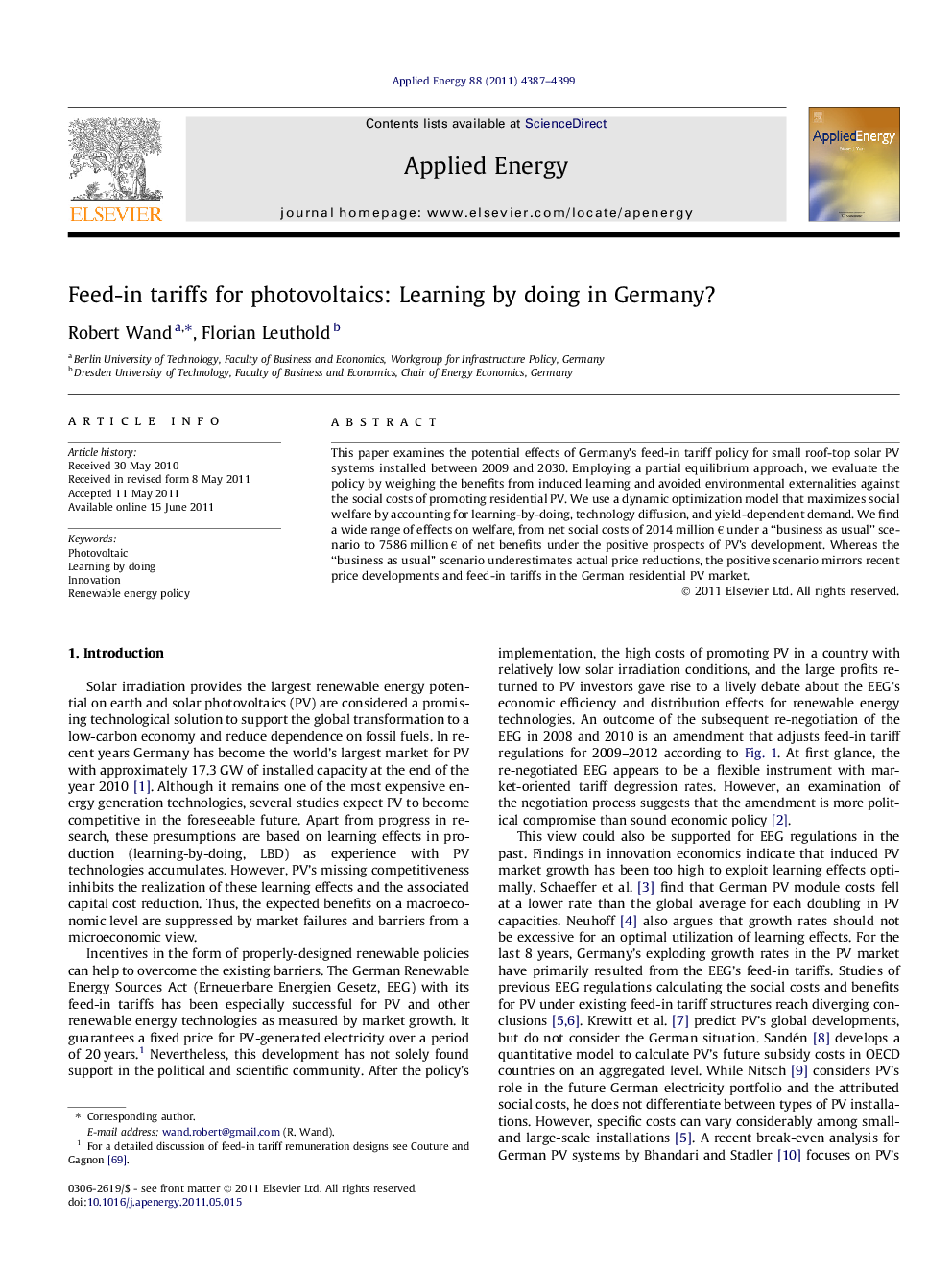| Article ID | Journal | Published Year | Pages | File Type |
|---|---|---|---|---|
| 243959 | Applied Energy | 2011 | 13 Pages |
This paper examines the potential effects of Germany’s feed-in tariff policy for small roof-top solar PV systems installed between 2009 and 2030. Employing a partial equilibrium approach, we evaluate the policy by weighing the benefits from induced learning and avoided environmental externalities against the social costs of promoting residential PV. We use a dynamic optimization model that maximizes social welfare by accounting for learning-by-doing, technology diffusion, and yield-dependent demand. We find a wide range of effects on welfare, from net social costs of 2014 million € under a “business as usual” scenario to 7586 million € of net benefits under the positive prospects of PV’s development. Whereas the “business as usual” scenario underestimates actual price reductions, the positive scenario mirrors recent price developments and feed-in tariffs in the German residential PV market.
► We model feed-in tariff policies for small roof-top PV systems in Germany. ► Our partial equilibrium approach maximizes social benefits between 2009 and 2030. ► We find welfare effects between costs of 2 bn € and benefits of 7.6 bn €.
